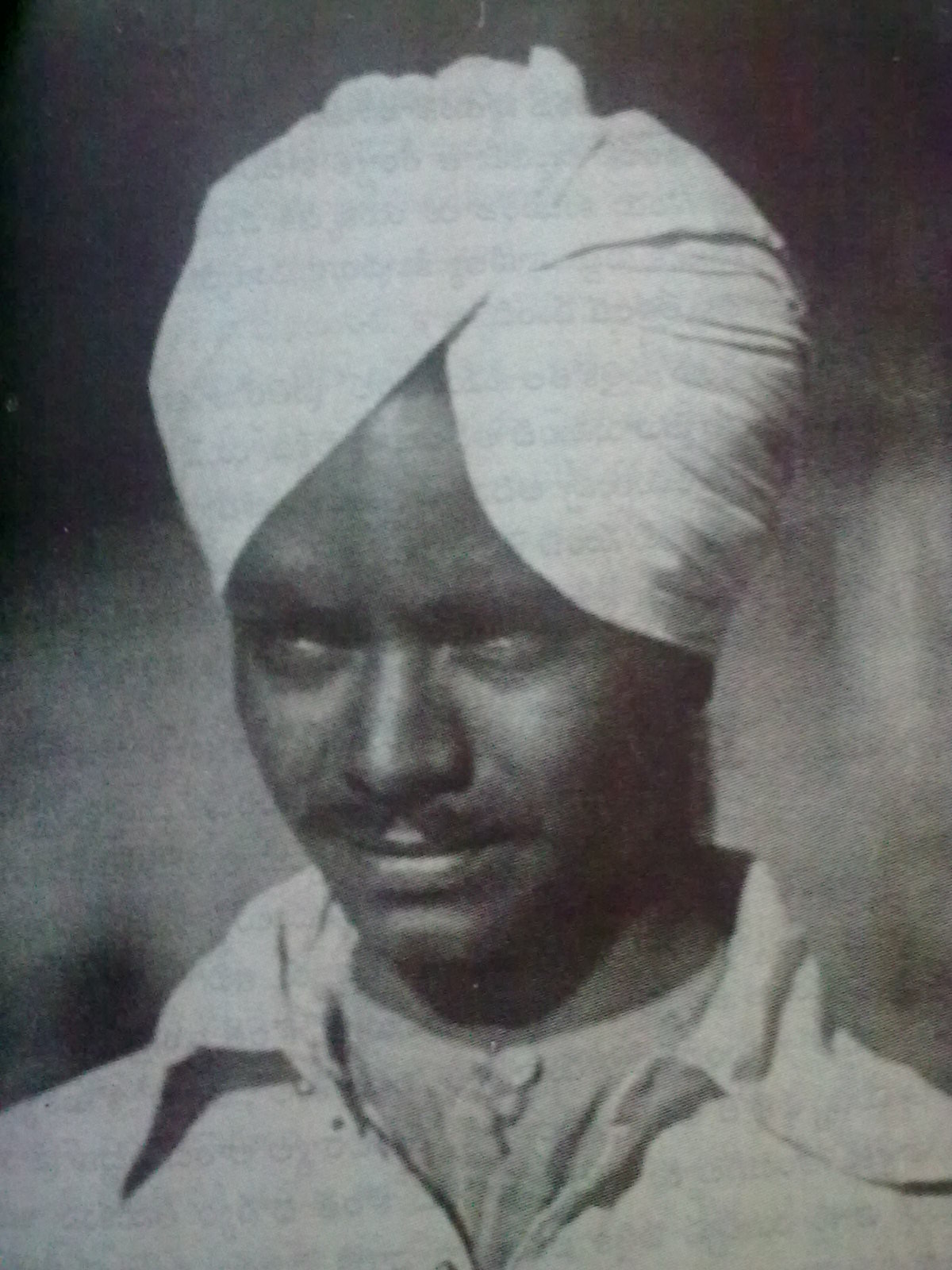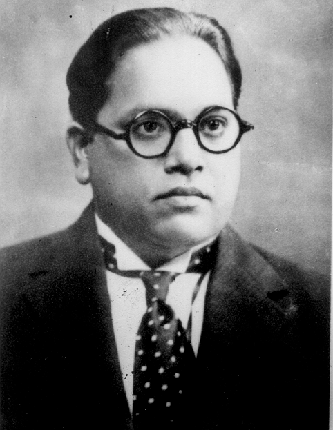|
Sanskritisation
Sanskritisation (or Sanskritization) is a term in sociology which refers to the process by which castes or tribes placed lower in the caste hierarchy seek upward mobility by emulating the rituals and practices of the dominant castes or upper castes. It is a process similar to "passing" in sociological terms. This term was made popular by Indian sociologist M. N. Srinivas in the 1950s. Sanskritisation has in particular been observed among mid-ranked members of caste-based social hierarchies. In a broader sense, also called Brahmanisation, it is a historical process in which local Indian religious traditions become syncretised, or aligned to and absorbed within the Brahmanical religion, resulting in the pan-Indian religion of Hinduism. Definition Srinivas defined ''Sanskritisation'' as a process by which In a broader sense, Sanskritisation is In this process, local traditions (little traditions) become integrated into the great tradition of Brahmanical religion, disse ... [...More Info...] [...Related Items...] OR: [Wikipedia] [Google] [Baidu] |
Ahir
Ahir or Aheer (derived from the Sanskrit word: abhira) is a community of traditionally non-elite pastoralists in India, most of whom now use the Yadav surname, as they consider the two terms synonymous. The Ahirs are variously described as a caste, a clan, a race, and/or a tribe. The traditional occupations of Ahirs are cattle-herding and agriculture. Since late 19th century to early 20th century, Ahirs have adopted ''Yadav'' word for their community and have claimed descent from the mythological king Yadu. This is a part of a movement of social and political resurgence (sanskritisation) under the influence of Arya Samaj. Sanskritisation of Ahir: * * Quote: "The movement, which had a wide interregional spread, attempted to submerge regional names such as Goala, Ahir, Ahar, Gopa, etc., in favour of the generic term Yadava (Rao 1979). Hence a number of pastoralist castes were subsumed under Yadava, in accordance with decisions taken by the regional and national level caste s ... [...More Info...] [...Related Items...] OR: [Wikipedia] [Google] [Baidu] |
Caste
A caste is a Essentialism, fixed social group into which an individual is born within a particular system of social stratification: a caste system. Within such a system, individuals are expected to marry exclusively within the same caste (endogamy), follow lifestyles often linked to a particular occupation, hold a ritual status observed within a hierarchy, and interact with others based on cultural notions of social exclusion, exclusion, with certain castes considered as either more pure or more polluted than others. The term "caste" is also applied to morphological groupings in eusocial insects such as ants, bees, and termites#caste, termites. The paradigmatic ethnographic example of caste is the division of India's Hinduism, Hindu society into rigid social groups. Its roots lie in South Asia's ancient history and it still exists; however, the economic significance of the caste system in India seems to be declining as a result of urbanisation and affirmative action programs. ... [...More Info...] [...Related Items...] OR: [Wikipedia] [Google] [Baidu] |
Oxford University
The University of Oxford is a collegiate research university in Oxford, England. There is evidence of teaching as early as 1096, making it the oldest university in the English-speaking world and the second-oldest continuously operating university globally. It expanded rapidly from 1167, when Henry II prohibited English students from attending the University of Paris. When disputes erupted between students and the Oxford townspeople, some Oxford academics fled northeast to Cambridge, where they established the University of Cambridge in 1209. The two English ancient universities share many common features and are jointly referred to as ''Oxbridge''. The University of Oxford comprises 43 constituent colleges, consisting of 36 semi-autonomous colleges, four permanent private halls and three societies (colleges that are departments of the university, without their own royal charter). and a range of academic departments that are organised into four divisions. Each college ... [...More Info...] [...Related Items...] OR: [Wikipedia] [Google] [Baidu] |
Gopa (caste)
Gopa or Gop or Gope is a synonym of the Ahir (Yadav) caste in India and Nepal. It is generally used as a title by the Ahir caste in the states of Bihar in India and Terai region of Nepal. Etymology The Sanskrit word Gopa, originally meant only a cowherd; it then came to mean the head of cowpen and lastly the chief of a tribe. Origin and history Buddhaswami, an ancient scholar, in his Brhatkathaslokasamgraha has mentioned the story of an Abhira who lived in a 'Ghosha' where both the terms 'Abhira' and 'Gopa' have been used for the same people. The Amarakosha lists Gopa, Gopala, Gosamkhya, Godhuk, and Ballava as synonyms for Abhira and states that the village or settlement where Abhiras lived was called Ghosa or Abhirapalli. Gwalior was known as Gopagiri in ancient and early medieval times, as mentioned in inscriptions by rulers such as Mihirkula and in an 876 AD inscription of Bhoja Deva, which suggest some kind of association of this place with pastoral communities like th ... [...More Info...] [...Related Items...] OR: [Wikipedia] [Google] [Baidu] |
Varna (Hinduism)
Varna (, ), in the context of Hinduism, refers to a social class within a hierarchical traditional Hindu society. The ideology of varna is epitomized in texts like '' Manusmriti'', which describes and ranks four varnas, and prescribes their occupations, requirements and duties, or '' Dharma''. *Brahmins: Vedic scholars, priests or teachers. * Kshatriyas: Rulers, administrators or warriors. * Vaishyas: Agriculturalists, farmers or merchants. * Shudras: Artisans, labourers or servants. This quadruple division is a form of social stratification, quite different from the more nuanced system of '' Jātis'', which correspond to the term "caste". The varna system is discussed in Hindu texts, and understood as idealised human callings. The concept is generally traced back to the '' Purusha Sukta'' verse of the Rigveda. In the post- Vedic period, the varna division is described in the '' Mahabharata,'' ''Puranas'' and in the '' Dharmashastra literatures''. The commentary on the Varna ... [...More Info...] [...Related Items...] OR: [Wikipedia] [Google] [Baidu] |
Economic And Political Weekly
The ''Economic and Political Weekly'' (EPW) is a weekly peer-reviewed academic journal covering all social sciences, and is published by the Sameeksha Trust. In January 2018, academic Gopal Guru was named the new Editor of the journal. Guru will be Editor for a period of five years. The previous full-time editor-in-chief, editor was Paranjoy Guha Thakurta. The Trust had earlier appointed Guha Thakurta as the new editor of the journal with effect from 1 April 2016. His appointment came at a time when many social scientists were opposing the supposed removal of the previous editor C. Rammanohar Reddy, who resigned in January 2016 only to controversially end in 2017 with Guha Thakurta also resigning. Gopal Guru is currently at the Centre for Political Studies at the Jawaharlal Nehru University in New Delhi, and is Editor-designate of the journal. The Sameeksha Trust board comprises eminent persons from academia and business, namely, Deepak Nayyar (chairman), D N Ghosh (Managing Trustee ... [...More Info...] [...Related Items...] OR: [Wikipedia] [Google] [Baidu] |
Rajputisation
Modern historians agree that Rajputs consisted of a mix of various different social groups (castes) and different varnas. Rajputisation (or Rajputization) explains the process by which such diverse communities coalesced to form the Rajput community. Formation According to modern scholars, almost all Rajputs clans originated from peasant or pastoral communities. Rajputisation is the study of formation of the community over the centuries. Sivaji Koyal suggests that Rajputisation boosted Brahmanism and defines it as follows, Sociologists like Sarah Farris and Reinhard Bendix state that the original Kshatriyas in the northwest who existed until Mauryan times in tiny kingdoms were an extremely cultured, educated and intellectual group who were a challenge to monopoly of the Brahmins. According to Max Weber, ancient texts show they were not subordinate to the Brahmins in religious matters. These old Kshatriyas were undermined not only by the Brahmin priests of the time but were r ... [...More Info...] [...Related Items...] OR: [Wikipedia] [Google] [Baidu] |
Anthropologist
An anthropologist is a scientist engaged in the practice of anthropology. Anthropologists study aspects of humans within past and present societies. Social anthropology, cultural anthropology and philosophical anthropology study the norms, values, and general behavior of societies. Linguistic anthropology studies how language affects social life, while economic anthropology studies human economic behavior. Biological (physical), forensic, and medical anthropology study the biology and evolution of humans and their primate relatives, the application of biological anthropology in a legal setting, and the study of diseases and their impacts on humans over time, respectively. Education Anthropologists usually cover a breadth of topics within anthropology in their undergraduate education and then proceed to specialize in topics of their own choice at the graduate level. In some universities, a qualifying exam serves to test both the breadth and depth of a student's understandi ... [...More Info...] [...Related Items...] OR: [Wikipedia] [Google] [Baidu] |
Alfred Comyn Lyall
Sir Alfred Comyn Lyall (4 January 1835 – 10 April 1911) was a British civil servant, literary historian and poet. Early life Alfred Lyall was born in Coulsdon, Surrey, the second son of Alfred Lyall and Mary Drummond Broadwood, daughter of James Shudi Broadwood. He was educated at Eton College. His elder brother, James Broadwood Lyall, was already serving in India, and this may have influenced him towards a career in that direction. He attended Haileybury College with that purpose in mind. In 1862 he married Cora Cloete, daughter of Peter Cloete. He died while on a sojourn to Farringford House, the family home of Alfred, Lord Tennyson, in Freshwater, Isle of Wight. Indian career After Eton and Haileybury, Lyall joined the Indian Civil Service in 1856, and served a long career in India. He landed at Calcutta in January 1856. After four months of training he was posted as an Assistant Magistrate at Bulandshahr in the North-West Provinces. He was there when the Indian ... [...More Info...] [...Related Items...] OR: [Wikipedia] [Google] [Baidu] |
Edwin Felix Thomas Atkinson
Edwin Felix Thomas Atkinson, (6 September 1840 – 15 September 1890) was an Irish lawyer in the Indian Civil Service who contributed in his spare time collecting insects and contributing to entomology. Life and career He was born in County Tipperary, Ireland, studied at Trinity College, Dublin and sat the Indian Civil Service Examinations in 1861. He joined the Indian Civil Service in 1862 and served in Bengal Presidency and the North-Western Provinces. Atkinson was a lawyer specialising in Indian law, and successively worked as Judge in a Small Cause Court, Deputy Commissioner of Paper Currency in Allahabad, and Accountant General of the North West Provinces. He was commissioned to produce a Gazetteer of Northwestern India and also wrote several books. He was a Fellow of the Royal Geographical Society and a member of the Entomological Society of London. As an entomologist, he had a particular interest in Lepidoptera (butterflies and moths) and was credited with identi ... [...More Info...] [...Related Items...] OR: [Wikipedia] [Google] [Baidu] |
Indian Antiquary
''The Indian Antiquary: A journal of oriental research in archaeology, history, literature, language, philosophy, religion, folklore, &c, &c'' (subtitle varies) was a journal of original research relating to India, published between 1872 and 1933. It was founded by the archaeologist James Burgess to enable the sharing of knowledge between scholars based in Europe and in India and was notable for the high quality of its epigraphic illustrations which enabled scholars to make accurate translations of texts that in many cases remain the definitive versions to this day. It was also pioneering in its recording of Indian folklore. It was succeeded by ''The New Indian Antiquary'' (1938–47) and the ''Indian Antiquary'' (1964–71). History ''The Indian Antiquary'' was founded in 1872 by the archaeologist James Burgess CIE as a journal of original research relating to India. It was designed to enable the sharing of knowledge between scholars based in Europe and in India. [...More Info...] [...Related Items...] OR: [Wikipedia] [Google] [Baidu] |
Bhimrao Ramji Ambedkar
Bhimrao Ramji Ambedkar (Bhīmrāo Rāmjī Āmbēḍkar; 14 April 1891 – 6 December 1956) was an Indian jurist, economist, social reformer and political leader who chaired the committee that drafted the Constitution of India based on the debates of the Constituent Assembly of India and the first draft of Sir Benegal Narsing Rau. Ambedkar served as Law and Justice minister in the first cabinet of Jawaharlal Nehru. He later renounced Hinduism, converted to Buddhism and inspired the Dalit Buddhist movement. After graduating from Elphinstone College, University of Bombay, Ambedkar studied economics at Columbia University and the London School of Economics, receiving doctorates in 1927 and 1923, respectively, and was among a handful of Indian students to have done so at either institution in the 1920s. He also trained in the law at Gray's Inn, London. In his early career, he was an economist, professor, and lawyer. His later life was marked by his political activitie ... [...More Info...] [...Related Items...] OR: [Wikipedia] [Google] [Baidu] |







